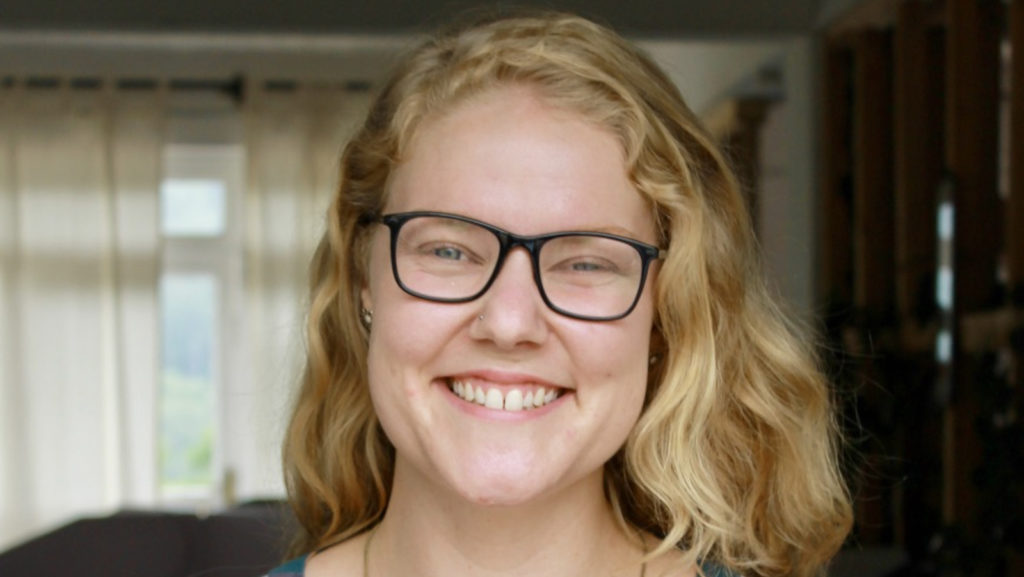Calling all marketers, do you think you send the best emails? Make it official by claiming victory at Everlytic’s You Mailed It Email Marketing…
Expat founders have it easier than locals says Danish founder of Rwandan startup

Do expat tech founders that set up startups in Africa have it easier than their local counterparts when running their business? Expat and entrepreneur Olivia Zank, the co-founder of Rwandan factoring firm BeneFactors, believes they do.
Zank, who is Danish and whose startup last week came out tops at the Seedstars Kigali pitching competition, believes its definitely easier in some ways, but harder in others.
She started the company last year with Jani Moliis (who is Finnish) after working as a policy advisor to Rwanda’s Minister of Trade and Industry in 2016 and 2017.
“We have easier access to external funding and more exposure to lean startup methods. Only something like 0.2% of venture capital (VC) funding in Africa goes to black female finders!” Zank said in an email to Ventureburn earlier this week.
On the whole though, I think expats have it easier, says expat and founder of Rwandan startup
She adds that local founders who have studied abroad also have the same benefits that expat founders have. This, she says, is dependant on the local founder’s social status as well as how much of a barrier their nationality is.
However, as Zank points out, expat founders also face many cultural obstacles. “Market research for instance is much more of a hindrance for expat founders than for local ones, since we don’t know the local market that well,” she says.
“On the whole though, I think expats have it easier — especially when it comes to dealing with government. Knowing that though just makes me work even harder since with the additional privilege I have, the bar for success is so much higher,” she adds.
‘Unfortunate tendency’
So what do local innovators in Rwanda think of her startup’s success? Zank thinks there is an “unfortunate tendency” to look at what she’s doing or what some other expat founders have done and think that it only works for expats. This, she says, is certainly not the case.
“I wish Rwandans would have more confidence in their own abilities and believe that they could easily have come up with something better.
“I think this lack of confidence is a reflection of many Rwandans not wanting to be the one to stick their necks out, but it does not mean that they can’t run a successful business,” stresses Zank.
‘$350k lent out so far’
Turning to her business, Zank says that since launching last year the startup has factored 330 invoices worth over $350 000 from 19 companies — all with no losses to date (although it may be a bit early to tell — Ed).
“So the capital we have, we’ve cycled almost twice already – with no losses to date,” states Zank.
She says her work as a policy advisor to Rwanda’s Minister of Trade and Industry saw her focus on private sector development.
“Looking at the existing landscape of programmes in Rwanda it was clear that no one was really focused on working capital products, even though that is the kind of finance most in demand. In Rwanda the focus has always been on promoting investment and gross capital formation, less on increasing capacity utilisation,” she explains.
Read more: BeneFactors crowned best Rwandan startup at Seedstars Kigali 2018
Zank then started working on policy and a programme to promote factoring, looking initially to attract an investor into the space. But, she says, the more she looked into the concept, the more she felt attracted to pursue the idea on her own.
“The opportunity looked so good and I was getting fed up with working in slow moving government entities. I reached out to Jani whom I’d worked with previously and BeneFactors was born,” she says.
Zank’s first client was a friend’s company to which she lent out $1000. Impressed by positive results of this first project, she then invested $20 000 of her own savings into the startup and then set about to raise funds.
“Jani Moliis (her co-founder) invested some money too and by now we’ve raised about $200 000, mostly from individuals. We have one institutional funder, NISK Capital, who gave us a loan of $50 000 to prove the idea very early on,” she says.
‘Certain it was going to fail’
However, it hasn’t always been so rosey for Zank who says when she started, she “had no idea” what she was getting herself into.
“I had never managed anyone before, didn’t know much about accounting or business administration, so it was a steep learning curve,” she admits.
She adds that she has had moments when she was “certain it was going to fail” and felt “awfully naive”.
“But those moments don’t last, and eventually things work out fine, and even when they don’t, you find a way to manage,” she says.
The biggest challenge currently facing the company is capacity to meet demand. Zank says there are many small businesses that need working capital support, but the startup has had to limit who it works with while it raises more funding to help more companies.
The company, which recently grew its team from three to seven people, is looking to go regional.
Says a confident Zank: “We’ve added more operational support as well as more data analytics capacity, on both risk and social impact and I’m very excited about the results we will see from those expansions soon”.
Featured image: BeneFactors co-founder Olivia Zank (Supplied)
*Editor’s note (30 July 2018): Subsequent to this article being published Zank told Ventureburn that she’d had “a couple” of young Rwandans state that they didn’t believe it would be possible for a Rwandan person to pull off her startup’s business model.
“I find it heartbreaking that they didn’t believe in themselves and their own abilities, because a Rwandan founder could definitely do what we are doing, and probably even do it better. At the same time, this speaks to the very real barriers that young Rwandans face and get discouraged by,” said Zank


